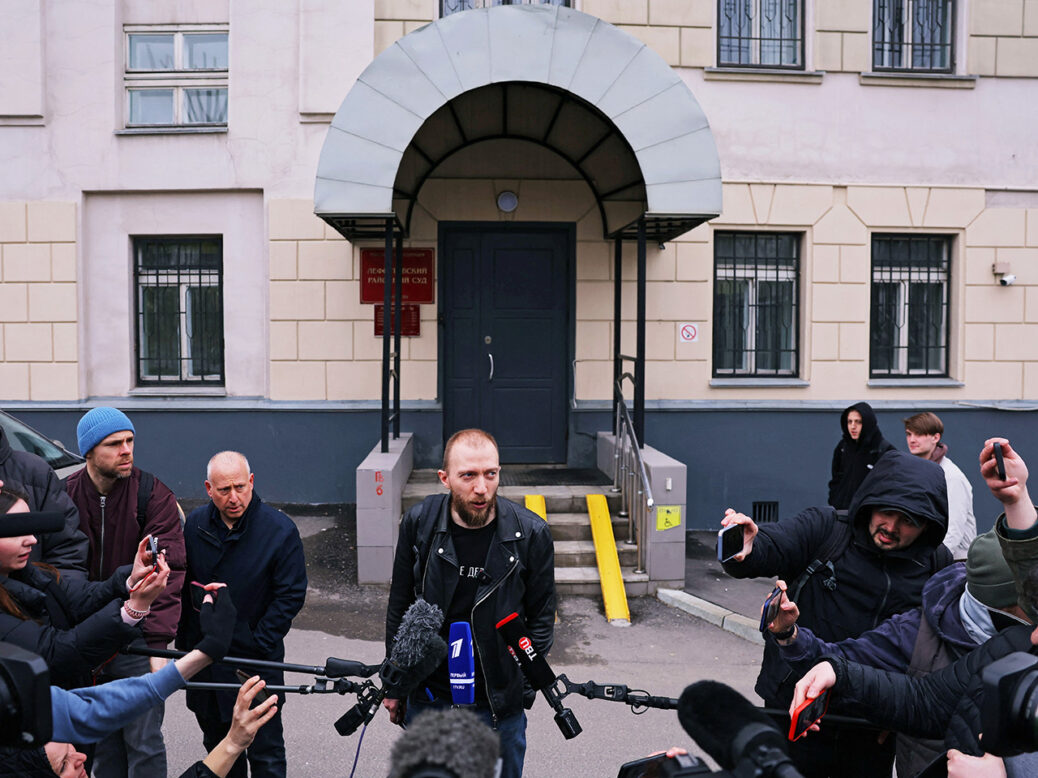
BERLIN – Why would an increasingly authoritarian regime take a foreign citizen hostage? Because recent history shows that it works.
It worked in February 2022 when Russian authorities arrested Brittney Griner, an American basketball player, at a Moscow airport after reportedly finding a minute amount of hash oil in her luggage. Griner, held on inflated charges for almost ten months, was finally released when Joe Biden’s administration traded her for Viktor Bout, a notorious Russian arms dealer who had been in US custody since 2010.
It also worked in 2018, when Chinese authorities arrested two Canadian citizens – Michael Spavor and Michael Kovrig – apparently in response to the arrest of Meng Wanzhou, a Huawei executive, at Vancouver airport. Both men were freed shortly after Meng was released from house arrest in Canada.
Now, Russian authorities may be following the same script once again. Evan Gershkovich, a reporter for the Wall Street Journal, has been arrested in the central Russian city of Ekaterinburg. In a statement on 30 March, the FSB, Russia’s security service – and the successor agency to the Soviet KGB – confirmed that it had arrested Gershkovich, an American citizen. Gershkovich was apparently transferred to Moscow, where a court ruled he would be detained on espionage charges for two months before being tried.
Statements from the Kremlin and other Russian agencies presenting Gershkovich as guilty suggest that his detention was sanctioned by top officials. A spokesperson for the Ministry of Defence, Maria Zakharova, said that Gershkovich’s activities “do not have anything to do with journalism”. The Kremlin spokesman Dmitry Peskov said that the journalist had been caught “red-handed”. If the arrest was somehow a mistake, the Kremlin has not left itself much room to backtrack.
The Russian authorities may be repeating the strategy they used in the Griner case. In a country without the rule of law, the government can choose which laws to apply and how to apply them. If the objective of the authorities is to detain a foreign citizen in order to make an exchange for a Russian held abroad, pretexts can be manufactured. Gershkovich, accredited by the Russian government, is accused of espionage, and the activities involved in carrying out the work of a journalist – travelling around the country, conducting interviews – can easily be cast as spying.
[See also: “Russia cannot afford to lose, so we need a kind of a victory”: Sergey Karaganov on what Putin wants]
Gershkovich’s arrest marks a disturbing low point in the Russian regime’s descent into authoritarianism. Not for over 30 years has an American journalist been arrested by the Russian authorities. (Several Western journalists have, however, been ordered to leave Russia, often in retaliation for Russian propaganda channels being ordered to cease broadcasting in their home countries.)
Russia may be seeking an appropriate hostage to swap for prisoners held in Western countries, such as Vadim Krasnikov, convicted in 2021 of murdering a Georgian citizen of Chechen origin in Berlin in 2019. The Kremlin may also have its eye on two alleged “illegals” – deep-cover agents for Russian intelligence – arrested in Slovenia late last year.
There may not, however, be a high-level prisoner currently in US detention Russia would consider appropriate to trade for a supposed spy. The US may need to pressure European countries to exchange alleged spies in their custody for Gershkovich. That could complicate efforts to secure his release.
In the meantime, if Gershkovich is not swiftly freed, the few remaining foreign correspondents in Russia will internalise the message that if he is not safe, none of them are. Some will likely take the hint and leave. If they do, it will virtually eliminate independent reporting in Russia, already all but stamped out since the invasion of Ukraine. And so, Putin will have scored a further victory.
Read more:
Russia’s invasion of Ukraine changes everything
Russia-Ukraine war: an invasion 30 years in the making
How the Ukraine war has changed the world






